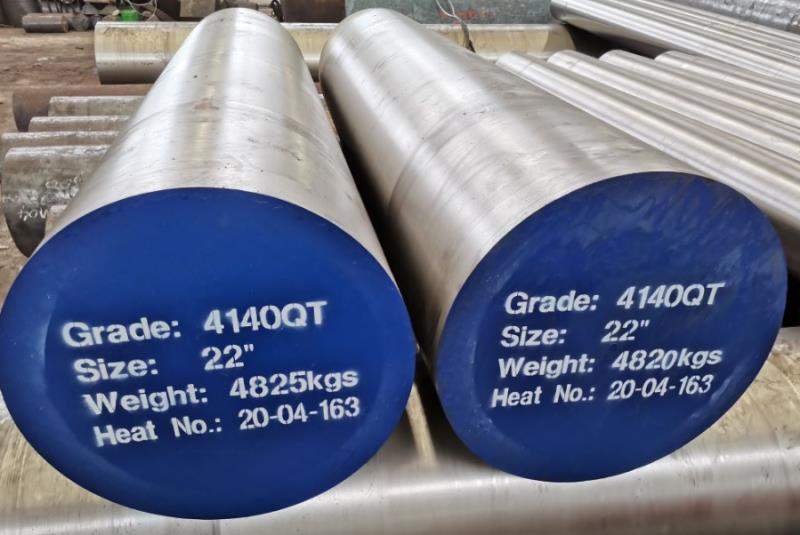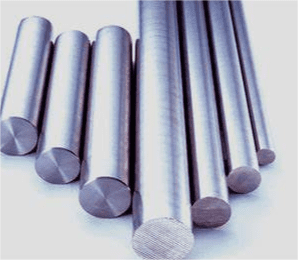Introduction

In the realm of industrial applications, the choice of materials is paramount to ensure efficiency, durability, and cost-effectiveness. Among the plethora of options available, 4140 alloy steel stands out for its exceptional properties and versatile applications. This blog post delves into the advantages of utilizing 4140 steel in various industrial settings, exploring its unique characteristics, benefits, and practical uses.
Understanding 4140 Alloy Steel
Before delving into its advantages, it’s crucial to grasp what sets 4140 steel apart. Characterized by its high tensile strength, excellent toughness, and good ductility, 4140 steel is a chromium-molybdenum steel that offers superb performance under demanding conditions. Its composition typically includes chromium, molybdenum, manganese, carbon, silicon, and iron, imparting remarkable properties ideal for a wide array of industrial applications.
Advantages of 4140 Alloy Steel
Exceptional Strength and Hardness
One of the primary advantages of 4140 steel is its exceptional strength and hardness properties. With a high tensile strength and good impact resistance, this steel grade excels in applications requiring heavy-duty performance, such as aerospace components, automotive parts, and industrial machinery.
Superior Fatigue Resistance
Another notable advantage of 4140 alloy steel is its superior fatigue resistance, making it suitable for components subjected to cyclic loading or stress. Whether in structural engineering, machinery manufacturing, or tool production, 4140 steel offers longevity and reliability, reducing the risk of premature failure and downtime.
Versatility in Heat Treatment
4140 alloy steel’s versatility in heat treatment is a significant benefit for industrial applications. By adjusting the heat treatment parameters, manufacturers can tailor the material’s properties to meet specific requirements, such as hardness, toughness, and machinability. This flexibility enhances the adaptability of 4140 steel across diverse applications, from gears and shafts to molds and dies.
Excellent Machinability
Machinability is a critical consideration in many industrial processes, and 4140 steel excels in this aspect. Its favorable machinability characteristics allow for efficient shaping, drilling, milling, and turning operations, facilitating streamlined manufacturing processes and cost-effective production.
Cost-Effectiveness
Despite its exceptional performance, 4140 steel offers cost-effectiveness compared to some alternative materials. Its availability, combined with its longevity and performance benefits, makes it an attractive option for manufacturers seeking to optimize production costs without compromising on quality or reliability.
Practical Applications of 4140 Alloy Steel

To illustrate the diverse applications of 4140 alloy steel, consider the following table showcasing some common uses across various industries:
| Industry | Application |
|---|---|
| Aerospace | Landing gear components |
| Automotive | Crankshafts, axles, and gears |
| Oil & Gas | Drilling components |
| Construction | Structural beams and columns |
| Tool Manufacturing | Molds, dies, and tooling inserts |
Conclusion
In conclusion, the advantages of 4140 alloy steel make it a preferred choice for numerous industrial applications. Its exceptional strength, fatigue resistance, versatility in heat treatment, excellent machinability, and cost-effectiveness position it as a reliable and efficient material for demanding environments. Whether in aerospace, automotive, oil and gas, construction, or tool manufacturing, 4140 steel continues to demonstrate its prowess, contributing to enhanced performance, durability, and operational efficiency.
FAQ
Q: What are the key properties of 4140 alloy steel?
A: 4140 alloy steel is known for its high tensile strength, exceptional toughness, good ductility, and superior fatigue resistance.
Q: What heat treatment methods are commonly employed for 4140 alloy steel?
A: Common heat treatment methods for 4140 steel include quenching and tempering, annealing, and normalizing, allowing manufacturers to tailor its properties according to specific requirements.
Q: Is 4140 alloy steel suitable for high-temperature applications?
A: While 4140 alloy steel exhibits good performance at elevated temperatures, its suitability for high-temperature applications depends on factors such as load, duration, and environmental conditions. For prolonged exposure to extreme heat, alternative materials with higher heat resistance may be preferred.
